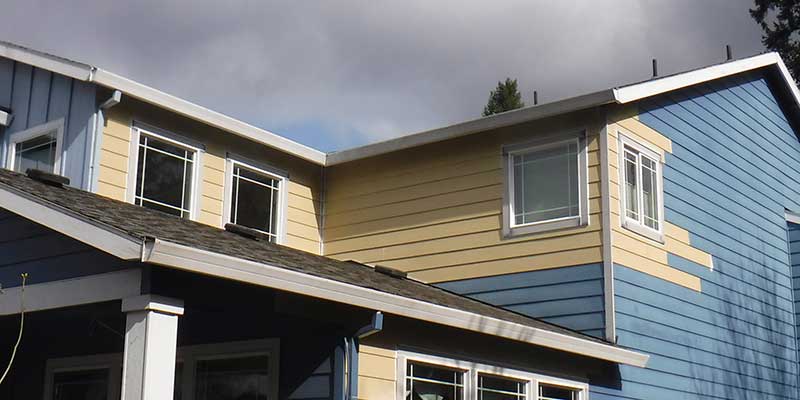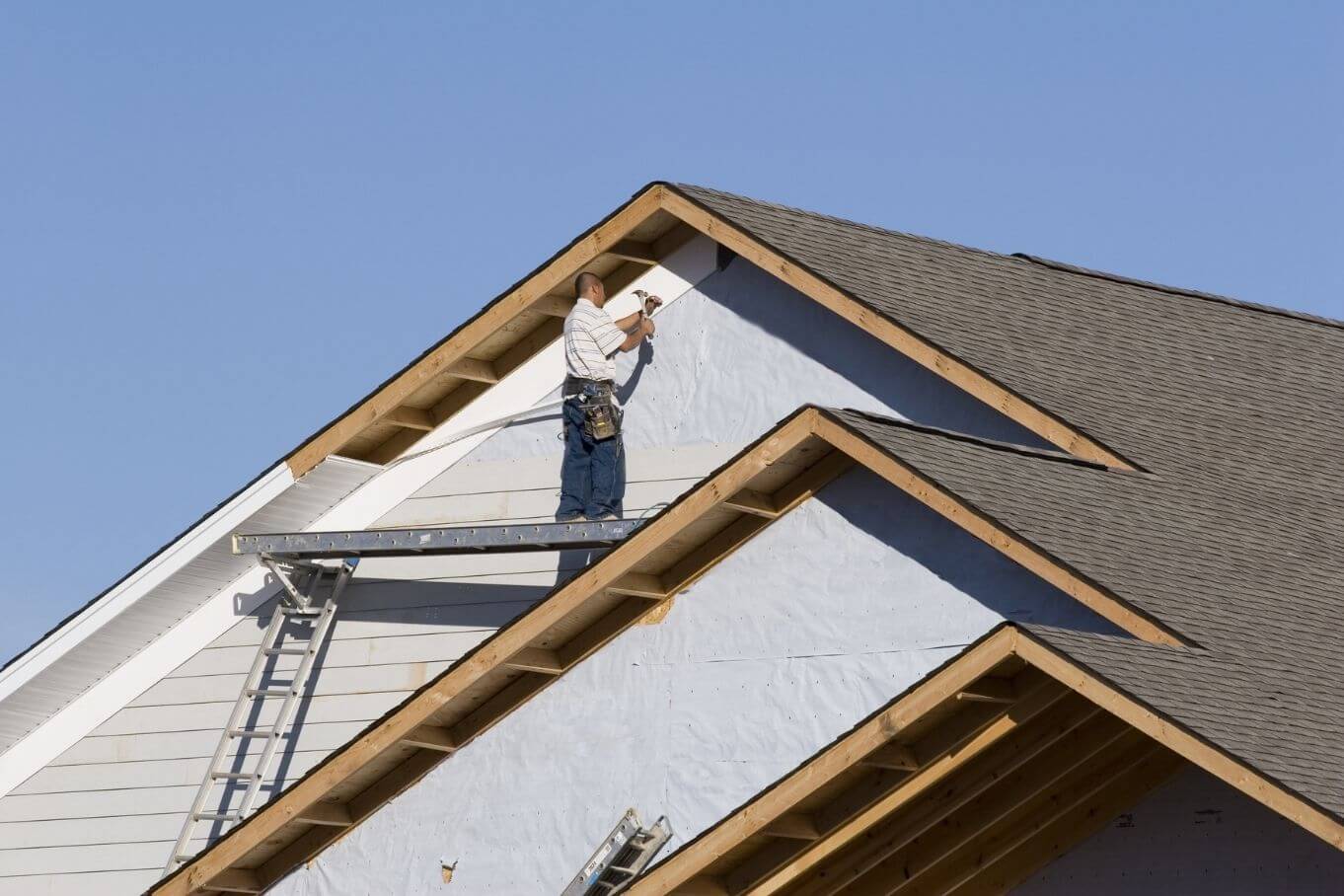Professional Morris Siding Contractor Offering Quick and Efficient Service
Professional Morris Siding Contractor Offering Quick and Efficient Service
Blog Article
The Crucial Overview to the Different Kinds Of Siding and Their Special Advantages
In the world of home renovation, selecting the best home siding is a critical decision that influences both visual charm and functional efficiency. With so numerous options to take into consideration, which exterior siding material absolutely stands out for your specific project?
Timber Exterior Siding
Timber exterior siding, a preferred choice for domestic outsides, supplies a classic aesthetic that combines natural charm with architectural honesty. This exterior siding product is offered in various styles, consisting of clapboard, roof shingles, and board-and-batten, enabling home owners to tailor their appearance to match their layout preferences. Wood siding is generally crafted from durable species such as cedar, redwood, or pine, which are understood for their resilience and capacity to withstand ecological stressors.
Among the key benefits of timber exterior siding is its excellent insulation residential properties, which can add to energy efficiency and reduced heating expenses. Additionally, wood siding is biodegradable, making it an eco-friendly alternative when sourced sustainably. Normal upkeep, including painting or discoloration, can lengthen its life expectancy and improve its look, allowing property owners to maintain the natural charm of the wood.
However, prospective drawbacks include sensitivity to parasites, rot, and weather damages, requiring adequate therapy and maintenance - morris siding contractor. Despite these problems, when properly taken care of, wood siding can give a long lasting and gorgeous option that enhances the personality of a home while providing a cozy, welcoming ambience

Vinyl Siding
Plastic exterior siding has actually become a leading option for property owners looking for a low-maintenance outside choice that incorporates sturdiness and price. This functional product is crafted from polyvinyl chloride (PVC), making it resistant to different weather, including moisture and UV rays. As an outcome, plastic house siding does not warp, rot, or discolor, making certain resilient aesthetic appeal.
One of the main advantages of plastic exterior siding is its extensive variety of colors and designs, enabling house owners to attain the wanted try to find their home without the requirement for regular repainting. Furthermore, plastic home siding is very easy to install, which can significantly decrease labor costs throughout building or restoration projects.
Vinyl exterior siding also adds to energy efficiency. Several options attribute insulation backing, which improves thermal performance, aiding to keep comfortable interior temperatures and potentially reducing power bills. Its smooth surface promotes easy cleaning, calling for only periodic washing with a garden hose to get rid of dust and debris.
Fiber Concrete Siding
Fiber cement exterior siding has obtained grip among builders and house owners alike because of its amazing combination of resilience and aesthetic convenience. Made up of a mixture of sand, concrete, and cellulose fibers, this exterior siding alternative is engineered to withstand severe climate condition, including high winds, hefty rain, and temperature changes, making it a resilient option for property exteriors.

One of the key benefits of fiber cement siding is its resistance to bugs, such as termites, and its non-combustible nature, offering enhanced fire safety and security. morris siding contractor. Furthermore, it is offered in a large variety of styles, textures, and colors, enabling home owners to accomplish their wanted visual without sacrificing efficiency
Another advantage is its reduced maintenance needs; fiber concrete siding normally requires paint or discoloration every 5-10 years, which is much less frequent than various other materials. Its long life contributes to a lower overall expense of ownership, as it decreases the demand for frequent repairs or substitutes.
Eventually, fiber concrete exterior siding stands for an outstanding financial investment for those seeking a resilient, eye-catching, and functional outside option, integrating both type and function to boost the home's aesthetic appeal.
Steel House Siding
The attraction of steel house siding depends on its durable resilience and modern-day visual allure, making it a favored option for modern design. Available in materials such as aluminum and steel, metal exterior siding uses a variety of colors and coatings, allowing home owners to achieve an individualized look that matches their layout vision.

Power effectiveness is another significant benefit, as numerous metal house siding products are made with insulation choices that help regulate indoor temperature levels. This can cause minimized power prices with time. In addition, metal exterior siding is usually recyclable, making it an eco-friendly option for sustainability-minded house owners.
The installation procedure for steel exterior siding can be reasonably uncomplicated, resulting in a quicker turnaround over here time for building jobs. Generally, steel siding combines capability and design, making it a functional alternative for those seeking a enduring and visually enticing exterior finish.
Block and Rock Home Siding
Block and stone house siding stands out as an ageless selection that improves the aesthetic charm of any home. Known for their toughness and low upkeep, these products offer an exceptional return on investment while boosting the building's aesthetic allure. Available in different colors, appearances, and patterns, block and stone can be tailored to match varied building designs, from traditional to modern-day.
One of the primary advantages of block and stone home siding is their energy performance. Both products have natural insulating buildings that help manage indoor temperatures, possibly reducing heating and air conditioning costs. In addition, they supply superior fire resistance contrasted to various other home siding choices, contributing to improved security.
Another benefit is their long life. Block and stone can last for years, commonly requiring minimal maintenance past occasional cleansing. Unlike timber home siding, they are resistant to insects and rot, guaranteeing a resilient exterior that stands up to the components.
Verdict
In summary, the option of house siding significantly influences a home's visual charm, power efficiency, and upkeep requirements. Each kind of siding-- whether timber, vinyl, fiber block, metal, or cement and stone-- uses special benefits tailored to various house owner choices and environmental problems. Recognizing these options makes it possible for educated decisions that boost both the sturdiness and visual charm of domestic outsides. Eventually, choosing the ideal house siding is necessary for accomplishing an equilibrium between capability and design in domestic style.
One of the key benefits of wood exterior siding is article source its outstanding insulation residential properties, which can contribute to energy efficiency and reduced home heating costs. In addition, wood house siding is naturally degradable, making it an eco friendly alternative when sourced sustainably.One of the key advantages of steel siding is its resistance to numerous ecological aspects.Energy effectiveness is an additional significant benefit, as several metal exterior siding products are developed with insulation alternatives that aid manage indoor temperature levels. Each kind of house siding-- whether timber, vinyl, fiber steel, cement, or brick and rock-- uses one-of-a-kind advantages tailored to various home owner preferences and environmental conditions.
Report this page